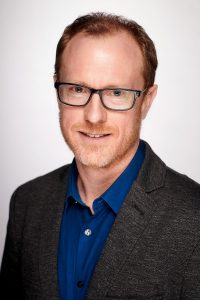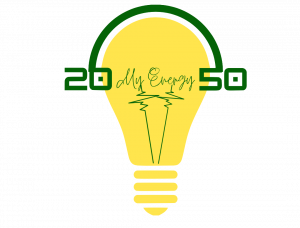
Founder: Michael Carnegie LaBelle is an associate professor at Central European University who wants to make a bigger difference outside of journals and academic publishers. In 2020 he founded the MyEnergy2050 podcast and website to begin to develop a new format to deliver content on the energy transition. The focus is to highlight the people and research making a difference in the highly complex realm of energy. By drawing on his broad experience and research interests Michael explores the holistic change necessary to build a clean energy system by 2050.
Dr. Michael LaBelle is an associate professor at Central European University. He is in the Department of Environmental Sciences and Policy and holds a partial teaching position in the Department of Economics and Business. He is also, an Open Society University Network Senior Academy Fellow, at Chatham House, The Royal Institute of International Affairs. From 2017 – 2021 he held the Jean Monnet Chair in Energy Innovations and Strategies at CEU, awarded by the European Commission.
Purpose of MyEnergy2050
The MyEnergy2050 platform highlights the people building a clean and sustainable energy system. We want to tell the story of their work on their path towards a zero-emissions energy system by 2050. We produce engaging content in a variety of media formats. The purpose is to deliver an enriched experience to understand scientific research and business activities. We deliver information and understanding that motivates and informs. MyEnergy2050 is the energy system we want to see in 2050.
What we do
The central axis of the platform is the MyEnergy2050 podcast with weekly interviews, reflections, and in-depth analysis of policy reforms and business activities. By using audio, videos, and writing we deliver a range of content to highlight people changing the energy system. Social media, with a strong focus on LinkedIn, deliver a means to interact with our audience, guests, and organizations who are also delivering thought leadership.
Standards
The MyEnergy2050 platform strives to be above other media and publishing sites. At the core of our content is an academic and scientific accuracy for content and insight. We take this seriously in viewing each published podcast episode or written publication as a product to be used in scientific research or for general consumption just as a journal, magazine or movie. Because of this, the MyEnergy2050 platform holds an ISSN (International Standard Serial Numbers) to signify our consistent publishing schedule. It also demonstrates our academic focus as other periodicals.
Financing
The MyEnergy2050 platform strives to become a financially sustainable entity by 2050. We seek out opportunities for collaboration or initiatives that can pay for producing content. This can occur in the form of donations, sponsorship or selling digital content. We are open to all opportunities and foresee substantial changes over the coming years as we develop different content.
The MyEnergy2050 pledge
A message from Michael LaBelle
As founder of the MyEnergy2050 platform, I’m pledging the next five years to produce content that highlights the people and research building a sustainable energy system by 2050. As an academic my time should be spent writing journal articles and books that are published by international publishing houses. These corporations neither pay for the content or for the review of the content. Academia is a wonderful place to explore ideas but academics now serve the publishers. In my view, the publishing system is broken. Others gain the monetary rewards while the academics and researchers who do the work and spend months and years writing a single piece receive little or no financial return.
Now our reach and productivity are assessed similar to Amazon warehouse workers: we are all quantified. Knowledge workers are assessed the same way as factory workers. We are all ‘blue collar’ now. This quantification prompts a race for a greater amount of citations and increasing our h-index. Our careers are measured based on this index. There are arguments for and against this system, and there are valid reasons to participate and even work with the publishers or build a career on the index. But what is clear to me, is this system is not why I’m an academic.
I believe the only way is to go all in, or all out. So I’m opting out. But as I will explain below, while also corrupting the bots that police this new quantified academic system.
Our contribution
What I know is I don’t write to increase a quantitative score. As a qualitative researcher, I believe the greatest contribution to make is to tell the stories of the people we interview and frame them through a theoretical lens to better understand. Collectively, this can emerge in the form as an academic article, a book or a case study. Afterward, the contribution should be telling those stories to as wide an audience as possible – or informing a group who can do more with that information. Thus educating other researchers or students is a worthy goal even for a journal article with a limited readership. Nonetheless, academic publishers work as mills with ever-increasing journals and even more articles all driven by a range often unhealthy agendas and motives. I think we all have our own path and motive for researching and writing. Since I was 15 years-old and writing for my school newspaper the writing process was about publishing the best content and helping inform people. I like to think that this previous goal can still serve as the guide in both my professional capacity as a professor and my personal capacity as a human being. Therefore the MyEnergy2050 pledge more closely aligns with who I am and why I do research.
Safety net
To be honest, I’m also rigging my system. I’m using MyEnergy2050 to demonstrate the fallacy of publishing houses and our h-index. I’ll be using the ISSN system that tracks our publications and citations. I’ll be using the related ISBN system for publishing e-books. This translates into each episode of the MyEnergy2050 podcast counting as a ‘publication’ or self-published books counting as published books. Thus rather than writing and publishing for free through international publishers, I’m going to work for myself and our audience to deliver solid and high-quality content that would normally be lost in the databases of libraries or on their shelves. At the same time, I don’t exclude random academic journal articles or research projects. I love academic writing and the ability to explore complex ideas mixed with the real world. However, the point of the MyEnergy2050 pledge is that when I wake up my purpose is to contribute to a broader and more active discourse around energy transitions rather than a citation database or part of the bulk subscriptions offered by international publishers. The standard then is to hold MyEnergy2050 ethos at the center and participate in other research or content endeavors when it serves the goals of the MyEnergy2050 platform.
What is success?
By June 2026 I want my writing, audio, and video content output to be higher than in the previous five years. This can be measured in both terms of publications and even by the citation databases. By making MyEnergy2050 the focus of my time and effort there will be a greater coherency and delivery of research, information, and analysis of how we build a cleaner energy system.
Michael LaBelle
June 2021
